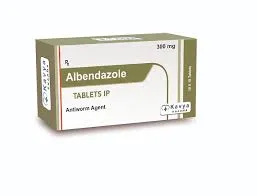- Afrikaans
- Albanian
- Amharic
- Arabic
- Armenian
- Azerbaijani
- Basque
- Belarusian
- Bengali
- Bosnian
- Bulgarian
- Catalan
- Cebuano
- Corsican
- Croatian
- Czech
- Danish
- Dutch
- English
- Esperanto
- Estonian
- Finnish
- French
- Frisian
- Galician
- Georgian
- German
- Greek
- Gujarati
- Haitian Creole
- hausa
- hawaiian
- Hebrew
- Hindi
- Miao
- Hungarian
- Icelandic
- igbo
- Indonesian
- irish
- Italian
- Japanese
- Javanese
- Kannada
- kazakh
- Khmer
- Rwandese
- Korean
- Kurdish
- Kyrgyz
- Lao
- Latin
- Latvian
- Lithuanian
- Luxembourgish
- Macedonian
- Malgashi
- Malay
- Malayalam
- Maltese
- Maori
- Marathi
- Mongolian
- Myanmar
- Nepali
- Norwegian
- Norwegian
- Occitan
- Pashto
- Persian
- Polish
- Portuguese
- Punjabi
- Romanian
- Russian
- Samoan
- Scottish Gaelic
- Serbian
- Sesotho
- Shona
- Sindhi
- Sinhala
- Slovak
- Slovenian
- Somali
- Spanish
- Sundanese
- Swahili
- Swedish
- Tagalog
- Tajik
- Tamil
- Tatar
- Telugu
- Thai
- Turkish
- Turkmen
- Ukrainian
- Urdu
- Uighur
- Uzbek
- Vietnamese
- Welsh
- Bantu
- Yiddish
- Yoruba
- Zulu
10 月 . 13, 2024 10:11 Back to list
Levamisole Hydrochloride Combined with Oxyclozanide for Enhanced Therapeutic Effects in Veterinary Medicine
The Role of Levamisole Hydrochloride and Oxyclozanide in Veterinary Medicine
Levamisole hydrochloride and oxyclozanide are two important pharmaceutical compounds used predominantly in veterinary medicine. While they serve different functions, their combined application has been shown to enhance the overall health and productivity of livestock and other animals. Understanding the properties, mechanisms, and applications of these compounds can provide valuable insights into their importance in animal health management.
Levamisole Hydrochloride A Versatile Anthelmintic
Levamisole hydrochloride is a synthetic imidazothiazole derivative that is primarily used as an anthelmintic. Its primary action is to stimulate the neuromuscular junctions of nematodes, leading to paralysis and subsequent elimination of the parasites from the host’s intestines. This compound is effective against a wide range of gastrointestinal parasites affecting livestock, such as Teladorsagia, Haemonchus, and Cooperia species.
In addition to its antiparasitic properties, levamisole has also been recognized for its immunomodulatory effects. It enhances the immune response in animals, which is particularly beneficial in the face of parasitic infections or other stress factors. By boosting the immune system, levamisole not only aids in the control of parasitic infections but also contributes to overall animal health and productivity.
The application of levamisole in various livestock, including sheep, cattle, and pigs, has been extensively documented. It is typically administered through oral solutions, injectable formulations, or feed additives. The choice of administration largely depends on the target species and the specific health issues being addressed.
Oxyclozanide A Unique Anthelmintic Agent
levamisole hydrochloride and oxyclozanide

Oxyclozanide is another effective anthelmintic agent, particularly known for its action against adult liver flukes, such as Fasciola hepatica. This compound is particularly relevant in regions where liver fluke infections pose significant health risks to livestock. Oxyclozanide operates by disrupting the metabolic processes within the parasites, leading to their death and expulsion from the host’s body.
One of the advantages of oxyclozanide is its relative safety and efficacy across different species of livestock, including cattle and sheep. Moreover, it is often used in combination with other anthelmintics, such as levamisole, to provide a broad-spectrum approach to parasite control. This combination therapy not only improves efficacy against various parasites but also helps in the prevention of resistance development, a significant challenge in veterinary parasitology.
The Importance of Combining Levamisole Hydrochloride and Oxyclozanide
The strategic combination of levamisole hydrochloride and oxyclozanide provides a potent solution for managing parasitic infections in livestock. By targeting different types of parasites and employing distinct mechanisms of action, this combination maximizes treatment effectiveness. For instance, levamisole can address a wide range of nematodes while oxyclozanide focuses on liver flukes, ensuring comprehensive parasite management.
In addition to the direct therapeutic benefits, the use of these compounds in livestock has broader implications for animal husbandry. Healthy animals lead to improved productivity, including better growth rates, higher milk production, and enhanced reproductive performance. As a result, the economic impact of using levamisole and oxyclozanide extends beyond individual animal health to overall farm profitability.
Conclusion
In conclusion, levamisole hydrochloride and oxyclozanide are vital components of veterinary pharmacology, particularly in the realm of parasite control. Their ability to effectively manage a variety of parasitic infections while also supporting immune function highlights their importance in maintaining the health and productivity of livestock. The strategic application of these compounds can lead to healthier animals, improved farm operations, and ultimately, a more sustainable agricultural practice. Continued research and development in this area will be essential for addressing the evolving challenges of parasitic infections in animals.
-
The Power of Radix Isatidis Extract for Your Health and Wellness
NewsOct.29,2024
-
Neomycin Sulfate Soluble Powder: A Versatile Solution for Pet Health
NewsOct.29,2024
-
Lincomycin Hydrochloride Soluble Powder – The Essential Solution
NewsOct.29,2024
-
Garamycin Gentamicin Sulfate for Effective Infection Control
NewsOct.29,2024
-
Doxycycline Hyclate Soluble Powder: Your Antibiotic Needs
NewsOct.29,2024
-
Tilmicosin Premix: The Ultimate Solution for Poultry Health
NewsOct.29,2024













